#myth of Atlantis
Explore tagged Tumblr posts
Text
Atlantis: The Most Indestructible Myth of All Time
On https://www.monkeyandelf.com/atlantis-the-most-indestructible-myth-of-all-time/
Atlantis: The Most Indestructible Myth of All Time
Imagine yourself curled up in your favorite chair, coffee in hand, leisurely scrolling through yet another explosive headline. “Atlantis Found—Again!” the bold text screams. Your first reaction? A tired grin. Hasn’t it already been discovered, a dozen times over? Wasn’t it in Antarctica last year? Or was it buried under the sands of the Sahara the year before that? Perhaps now it’s miraculously turned up in someone’s backyard beneath a raspberry bush. Atlantis, it seems, is the world’s most misplaced lost city—and its most entertaining.
If you’ve been paying attention, you’ll know that over the past ten years alone, Atlantis has been “discovered” more times than most people have birthdays. In one particularly enthusiastic stretch, a Russian tabloid triumphantly located it twenty different times. And prophets? They’ve predicted its dramatic return again and again, with firm dates like 1969, 2002, and 2013. Yet each time, Atlantis slips away once more, laughing quietly beneath the waves—or perhaps beneath our noses.
But where did this obsession begin? What makes the legend of Atlantis so unshakable, so wildly resilient that it still captures the imagination of millions after more than two thousand years?
Plato’s Cautionary Tale Turned Global Obsession
To understand Atlantis, we have to travel back in time—about 2,400 years—to one of the greatest minds in ancient philosophy: Plato. In two of his dialogues, Timaeus and Critias, Plato spins the tale of an extraordinary island-state, a place teeming with wealth, beauty, power, and unmatched engineering. According to him, Atlantis lay beyond the Pillars of Hercules—what we now know as the Strait of Gibraltar—and it was no small island. In fact, he described it as being larger than Libya and Asia combined.
He didn’t stop at grand claims. Plato, with the precision of an ancient city planner, included details about the concentric ringed layout of the capital city, the specific width of canals, and even how their irrigation systems worked. For a philosopher, he was remarkably meticulous. But modern geographers and historians raise an eyebrow—or both. A landmass that size, with that level of detail, and still no trace after all this time? They laugh, they sigh, and they shrug, because no one really knows what Plato meant—except perhaps that he never meant it literally.
And yet, humanity couldn’t let it go.
Atlantis and the Search for Something More
Over the centuries, the location of Atlantis has shifted like sand through fingers. Early thinkers searched the Mediterranean, linking Plato’s story to islands like Crete or Santorini. Later theories moved further west, pointing to the mid-Atlantic or even the Caribbean. At one point, people insisted the remains must lie deep beneath Antarctic ice. Others claimed it wasn’t in the sea at all—it was buried high in the Andes Mountains, never mind that it was supposed to be an island.
Even the cold waters of the North Sea weren’t immune to speculation. There’s always a new hypothesis, a new “discovery,” a new map or ancient manuscript that someone reinterprets with wide-eyed certainty. Underwater formations? Must be Atlantean ruins. Unusual terrain on satellite imagery? Atlantis, obviously. Each revelation is followed by a flurry of excitement—and eventually, quiet debunking.
But the persistence of these stories isn’t really about the evidence. It’s about the yearning. Atlantis endures not because we’re certain it was real, but because we want it to be.
Why We Can’t Let Atlantis Go
At its core, the myth of Atlantis survives because it feeds on the deepest parts of human nature. We are drawn to mystery like moths to flame. The idea of a once-great civilization, swallowed by time and tide, tugs at both our curiosity and our imagination. It’s a mystery with no end, a puzzle with no edges, a question that can never be answered—making it irresistible.
More than that, Atlantis represents a vision of paradise lost. In countless retellings, it is described not just as powerful or advanced, but as beautiful, harmonious, even enlightened. It was a world that worked—until it didn’t. The fall of Atlantis, in every version, serves as a tragic reminder that even the greatest achievements can be undone by arrogance and greed. It’s the Titanic of the ancient world, a story that becomes more poignant with each passing era.
There’s also a more pragmatic reason the myth won’t die: Atlantis sells. Books, documentaries, YouTube videos, and films—every new angle, every new clue, becomes a product. Content creators know that the name “Atlantis” will draw attention, no matter how many times the story’s been told. As long as there are people willing to read and watch, there will be someone eager to “find” it again.
Even scientists sometimes get caught in the undertow. While most researchers steer well clear of pseudoscience, the search for forgotten ancient civilizations continues. Occasionally, legitimate archaeological discoveries get twisted into “proof” of Atlantis by the media. A sunken city in the Aegean becomes “evidence.” An unknown structure off the coast of India becomes “confirmation.” And so the myth is revived, not by truth, but by suggestion.
Myth in Us?
And what if that’s exactly what Plato intended?
Many scholars believe Plato never meant for Atlantis to be taken literally. To him, it was a parable—a story meant to illustrate a deeper truth about power, pride, and moral decay. If so, he’d be astonished to learn that his fictional island became a global obsession, a cornerstone of pseudo-historical fantasy, and a spark for centuries of debate.
Yet perhaps that’s where the true power of Atlantis lies. Not in the stones or maps or sonar scans, but in what it represents. A society more advanced than our own. A people more in tune with nature and each other. A golden age that we lost—and that we dream of regaining.
Maybe Atlantis isn’t beneath the ocean or hidden in the ice. Maybe it’s an idea we carry with us—a symbol of the perfect world we hope to create. As one modern thinker might put it, Atlantis is not out there. It’s within us.
Then again, that might sound a bit too poetic. Still, the point remains.
Atlantis survives not because it was real, but because it feels real. As long as we’re drawn to mystery, as long as we yearn for paradise, as long as we chase the dream of a better world—Atlantis will never truly disappear. And maybe, just maybe, that’s the most indestructible truth of all.
#Atlantis ancient civilization#Atlantis conspiracy#Atlantis facts#Atlantis legend#Atlantis location#Atlantis myth#Atlantis real or fake#Atlantis theory#Atlantis underwater city#history of Atlantis#lost city of Atlantis#myth of Atlantis#Plato Atlantis#Plato Critias Timaeus#where is Atlantis
0 notes
Text
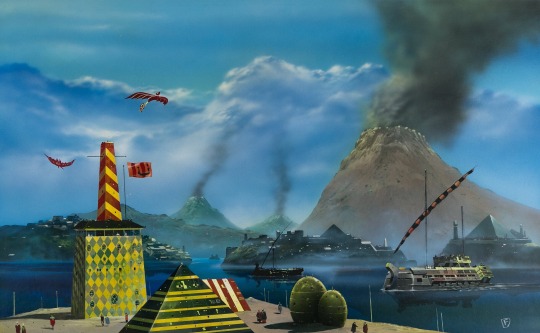
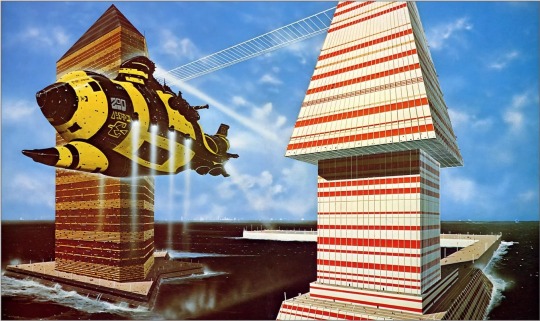
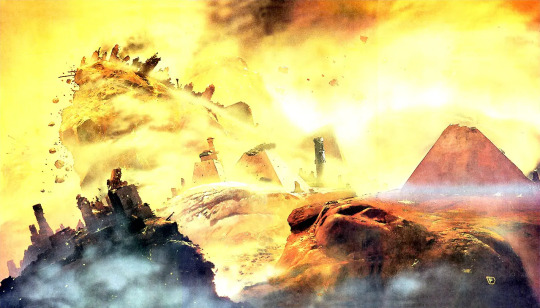

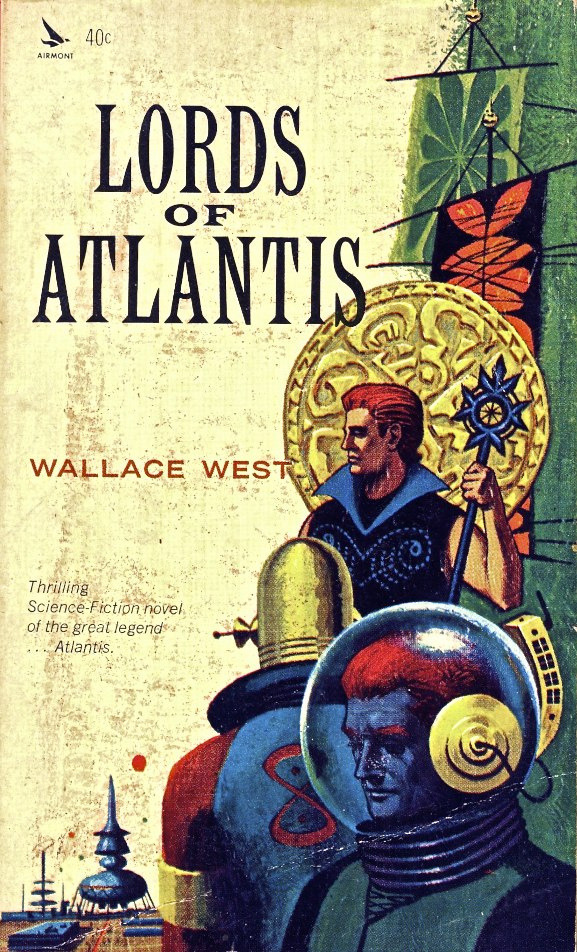
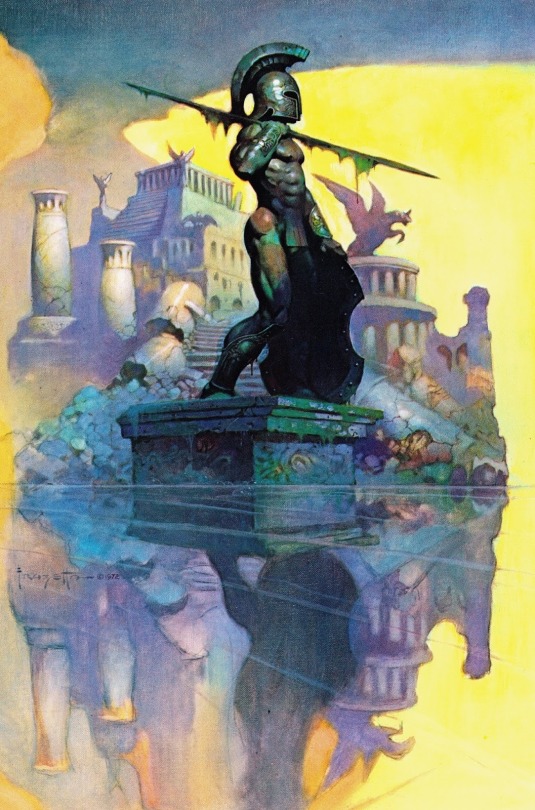
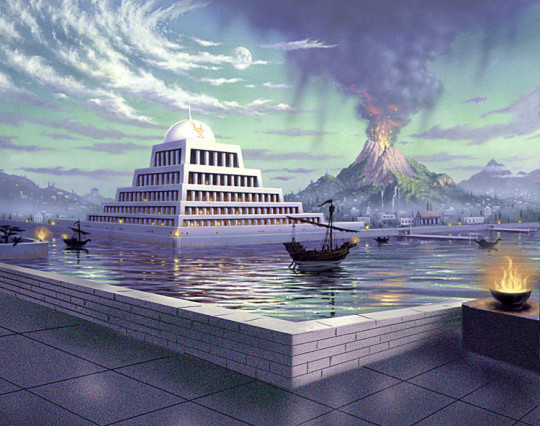

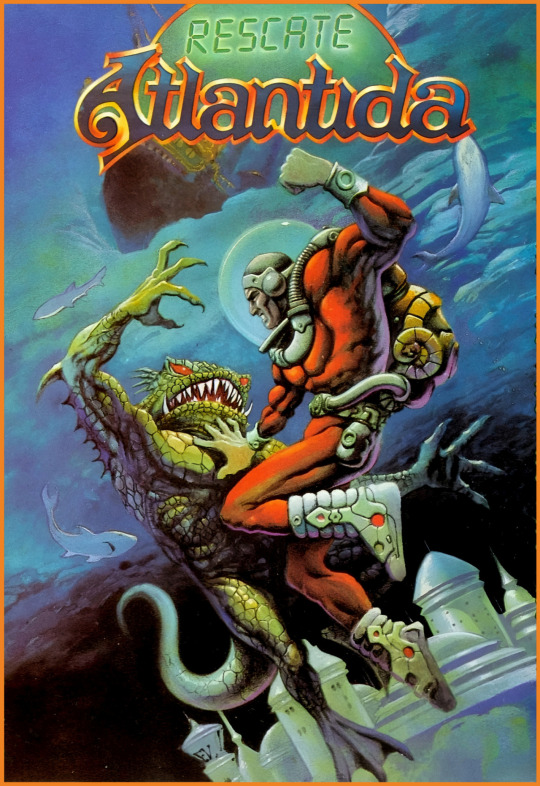
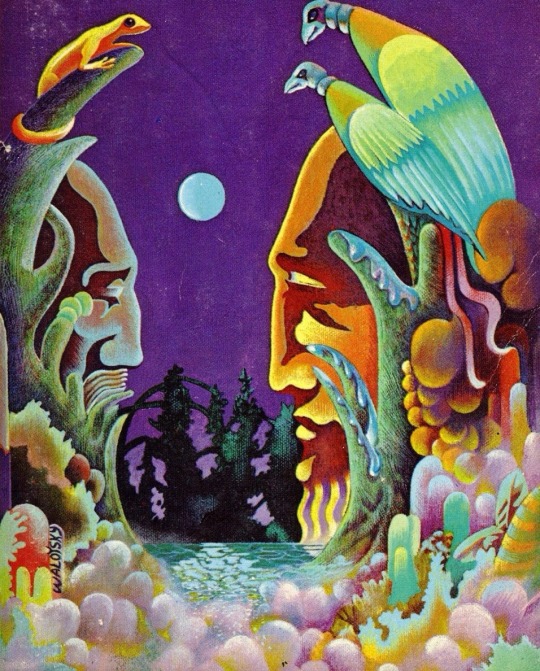
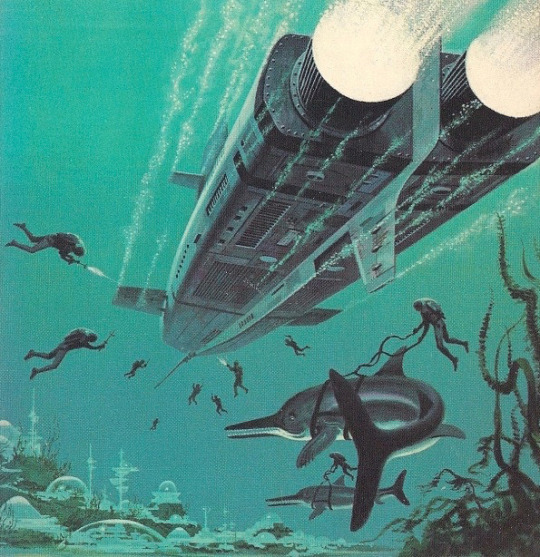
Depictions of Atlantis in retro science fiction art. Artists are credited in the alt text.
These images are from a recent post about Atlantis on my art blog: Check it out for more context and information about all of them.
#Atlantis#myths#paranormal#science fiction#sf city#and then sign up for my art blog newsletter when youre done reading it!!#photo set
485 notes
·
View notes
Text
Imagine, if in two thousand years, everyone was obsessed with Omelas.
Alright, not everyone obviously. But you'd be hard pressed to find someone who didn't at least know its name. You were absolutely told the story as a child, might even have watched a movie or played a game about plucky kids rescuing the child of Omelas from their cell and taking down the city's corrupt priesthood. You definitely have vague memories of browsing the holo-channels as a kid on a sick day and watching a documentary about how the city fell, analyzing the texts of the historian Le Guin, and attempting to track down its "true" location.
There are whole societies dedicated to that question. Not just people on the Feed Boards, but like, actual archeologists and historians (that's how they describe themselves, at least) who literally head out to various moons and dwarf planets, doing all sort of complicated scans and digging up rock formations and old habitat ruins that they claim, based on ancient texts, to be a prime candidate for where Omelas was located.
It goes deeper than that, you realise later, if you dig deeper. There are entire belief systems based on Omelas. Many claim that Omelians were not humans at all, but actually advanced aliens or even gods, who granted humanity the first technology for space flight. There are political parties, some quite popular-- and powerful-- who claim descent from the Omelians, and who argue that descent makes them rightfully superior to all other races. These people rarely, if ever, bring up how the moral question at the story's heart about the Omelian's corruption. Omelians were wise and just and powerful, obviously, and that's why they should be in charge now.
This is what happened to Plato's story of Atlantis.
#atlantis#mythology#sort of#i would argue atlantis isn't even a myth in the traditional sense but it really has become one#anyway i was watching a video on the Nazi's beliefs in this stuff and it just struck me again how Wild it is#also thinking about how Anne Leckie was So Right in her Imperial Radch verse#about how almost every culture has segements arguing how Their planet is the birthplace of humanity
606 notes
·
View notes
Text
POV: Poseidon watching Odysseus on the cliff from the ocean during Love in Paradise

#meme#memes#funny memes#lol memes#relatable memes#tumblr memes#greek mythology#greek art#greek myth art#ancient greek mythology#epic poseidon#poseidon#epic the musical fanart#epic the musical#epic the musical wisdom saga#epic the wisdom saga#epic love in paradise#love in paradise#fanart#funny art#fan art#original art#traditional art#my art#original drawing#original design#Atlantis#the odyssey#epic odysseus#odysseus
154 notes
·
View notes
Text

MerMay Day 8: Atlantis 🔱🫧
A broken statue resting within ruins at the bottom of the sea, does it depict a guardian or a destroyer? 🔱
#art#artists on tumblr#traditional art#drawing#fantasy art#Mermay#mermay 2025#mermaid#mermaid art#Atlantis#greek mythology#greek myth art#ancient greece#ruins#statue#fantasy creature#mythology
46 notes
·
View notes
Text

"Defense of Atlantis"
#ai man#ai generated#ai artwork#gay ai art#art direction#gay fantasy art#gayart#atlantis#sea king#male physique#physique art#high fantasy#myths and legends#ai hunk#sexy hunk#long haired man#bearded man
21 notes
·
View notes
Text
unbind NOW king, let em hang brother


I love trans icarus w all my heart
#[jackie rambles]#icarus#hades 2#hades ii#bbc atlantis#if you're wondering why jasons saying it to him its bc hes from our world so ofc he would say shit like that#also jason Icarus friendship my beloved i think they would've been good friends too#originally I was gonna put actual myth icarus but i didn't know who to put and also hes kinda#shirtless so he already letting them hang#good for him#forgot to put the other hades tag#hades icarus#and i forgot another tag after posting per usual#waxwitch
127 notes
·
View notes
Text
one of my favourite things about bbc atlantis is the ‘this is how things are deal with it’ attitude. any other show, if the protagonist got magically teleported from the 21st century to ancient greece, the whole story would have been about getting home.
not jason. this dumbass washes up on a beach and ten minutes later he’s waltzing around like he’s lived there his entire life. truly iconic.
#he doesn’t even question it!#like sure there are moments of recognising the myths#but mostly he’s just completely chill with leaving behind modern life#literally no one is doing it like this show#bbc atlantis
114 notes
·
View notes
Text

We are the descendants of drowned wisdom,
those who sang before language and bled light into the tide. They will call us mythical. But we are mathematical.
We are memory in motion.
The flood is not coming.
It’s returning.
Lemuria cracked for the same reason we tremble now,
Atlantis shattered not from war, but from forgetting.
Because power without soul
always devours itself.
So ask yourself:
When they merge with machine,
will you remain human?
When they forget,
will you still remember?
And when the sirens cry again,
will you answer,
or become the silence that destroys us?
#atlantis the lost empire#lemurian#the fall#spirituality#esoteric#knowledge#wisdom#divine#consciousness#mermaid#hidden#truth#digital diary#arcane#journal#occult#magick#myth#past lives#transhumanism#artificial intelligence#siren#lore
19 notes
·
View notes
Text
Gotten a few asks about this so let me clarify:
Atlantis the Lost Empire is NOT Nazi propaganda nor is it an endorsement of Nazi beliefs.
It's another example of a piece of media that has taken inspiration from a conspiracy theory which unfortunately has ties to the Nazis' obsession with proving their bonkers Aryan race theory.
The Nazis were obsessed with finding and creating ANY sort of historical/traditional link to validate their agenda, no matter how utterly ridiculous or entirely separate from reality that link was. They were obsessed with the mystical and the occult. Pseudo-science and pseudo-archaeology were their literal bread and butter.
In this instance, Plato's story of a sunken ancient city is not special for being co-opted for the Nazi's purposes. What has lead Atlantis to becoming a popular conspiracy theory in modern times is due in part to the steady popularization of pseudo-science as well as bad faith actors promoting a racist conspiracy theory as genuine fact.
The majority of conspiracy theories you hear about today actually have roots in fiction. For example, the Hollow Earth conspiracy theory finds it's origins from science fiction novels dating back to the 1800s. The Philadelphia Project can also trace its origins to a UFO writer who claims he was receiving secret confidential intel from a former US mariner. And yet there are are people who genuinely believe there is a secret world hidden in the center of the earth and that the US government was experimenting with and succeeded in creating a portal to another dimension.
So is the case with Atlantis. Atlantis: The Antediluvian World was written by Ignatius Donnelly in 1882 as a means to express his desires for a populist government and world. He was extremely misguided in his belief that Plato's story was factual and he employed the use of hyperdiffusion-a popular method used in countless conspiracy theories-to argue that all ancient societies were basically all descended from one even more ancient people.
Or in the Nazi's own terms: "An ancient master race."
Bad actors like Graham Hancock and Ancient Aliens further popularized the Nazi's conspiracy theory (as well as many others) and Donnelly's books by spreading mass disinformation across a global scale and we are all suffering for it.
As I've already stated before, Atlantis the Lost Empire takes superficial inspiration from the conspiracy theory in the same way that Stranger Things takes inspiration from the Montauk Project. Many popular sci-fi films, tv shows, books, and video games are littered with references and nods to conspiracy theories. Everything from Men in Black to The X Files to the SCP Foundation.
If you are interested in seeing how convincing conspiracy theories can get and their very real ability to destroy actual lives, I recommend watching American Conspiracy: The Octopus Murders. It perfectly showcases how conspiracy theories can suck you in and how people can easily take advantage of you once they break down your ability to distinguish fiction from reality.
My only caveat with the documentary is that I really wish the creators had emphasized even more plainly to the audience that the Octopus Murders is an actual conspiracy theory instead of leaving the question somewhat open ended. Especially in regards to Danny Casolaro's death.
I would also highly recommend watching Milo Rossi aka miniminuteman's videos as his channel is dedicated solely to debunking various archaeological conspiracy theories as well as providing fascinating education on a variety of historical topics. I really cannot overstate how wonderful his Awful Archaeology series is.
I'm going to link a few of my favorites here:
youtube
This is the first of a multiseries debunking Graham Hancock's Ancient Apocalypse series.
youtube
This is Part 1 of 2 of him debunking one of the most notorious TikTokers who makes a living off of spreading mass disinformation.
I would be remiss not to mention Atun-Shei Film's amazing channel as well as Lady of the Library.
youtube
youtube
youtube
I would also recommend Kaz Rowe's channel as they provide stellar information on a wide variery of historical topics.
youtube
youtube
Tldr; Atlantis the Lost Empire and the films creators' did not set out to promote Nazi beliefs. They simply took inspiration from a popular conspiracy theory and made it something entirely unique and separate from the Aryan race agenda.
#dreamer talks#atlantis#atlantis the lost empire#conspiracy theory#conspiracy theories#psa#history#world history#debunking myths#debunking conspiracy theories#this is a public service announcement#edits will be made as needed#feel to correct me on any of these points#or to offer your own recommendations#Youtube#long post#long post is long#fuck graham hancock#fuck ancient aliens
37 notes
·
View notes
Text
Shake yo scales, shake yo scales, shake yo scales🐍
#greek mythology#greek gods#ancient greek#greek myth art#percy jackson#percy jackon and the olympians#percy series#percy and annabeth#blood of zeus#hercules#clash of the titans#american gods#Atlantis#wrath of the titans#god of war#medusa#thor#mcu loki#xena warrior princess#alexa demie
27 notes
·
View notes
Text
Sunken Lands: A Journey Through Flooded Kingdoms and Lost Worlds by Gareth E. Rees: Book Review
Sunken Lands, the new book by Gareth E. Rees may be one of those that forms a quandary for bookshop staff – just what shelf should it be placed on? For within its pages it covers a wealth of terrain (mostly of the moist or entirely saturated variety). Is it a folklore and legend book? A travel and history book? Psychogeographical philosophy? Natural History/Conservation? Occulture and Mystery?…

View On WordPress
23 notes
·
View notes
Text
Badly Summarised WIPs Poll
Thank you for the tag, @pluttskutt, @tc-doherty, @sunset-a-story, and @pheita! I've picked one of my best known WIPs, a new wip, and some of the ones I haven't worked on as much...
I'll tag, with no pressure, @inky-duchess, @fields-of-ink, @ink-fireplace-coffee, @47crayons, and @ofbloodandflowers.
#tag game#writeblr#WIP#want does not equal need#Greek myth wip#Bride of Loki#Hiraeth#Reporting on Atlantis
20 notes
·
View notes
Text
Some of my favorite Hermes shots from my playthrough of the Fate of Atlantis DLC
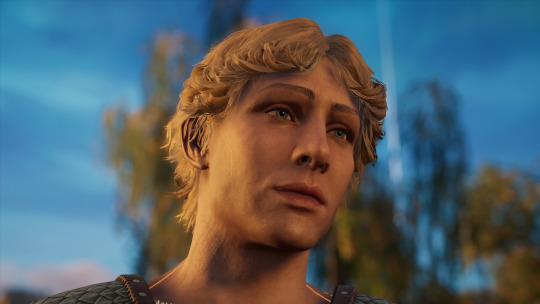
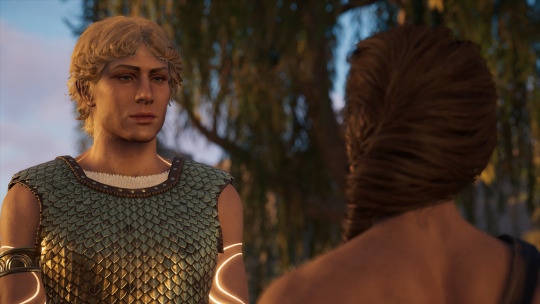

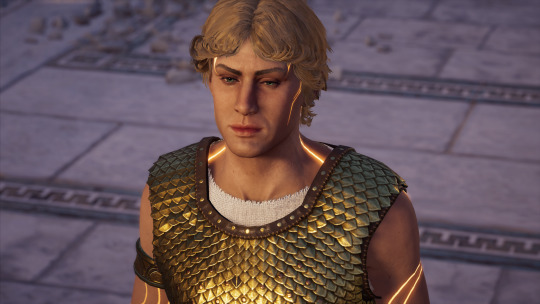
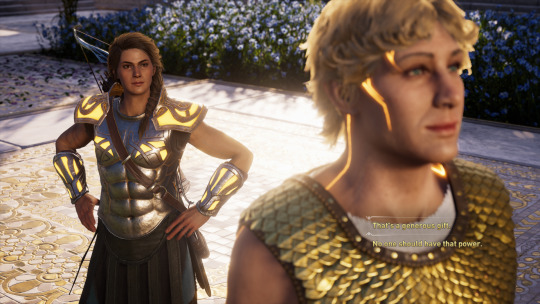
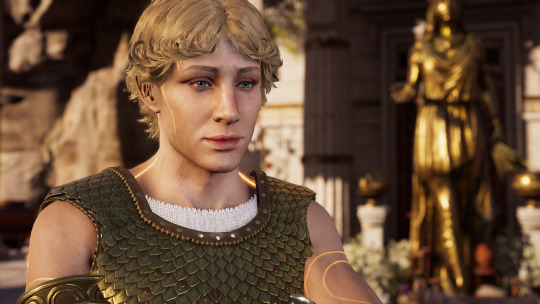

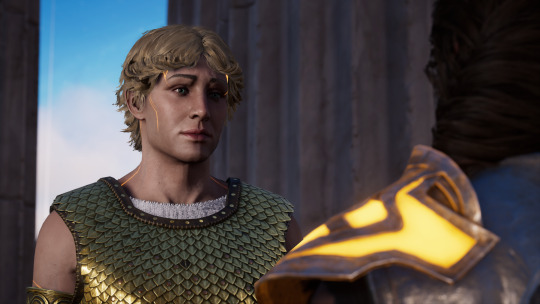
Your honor, he’s just a baby 🥺
#ac kassandra#Hermes#ac odyssey#fate of atlantis#assassin’s creed#greek myths#greek mythology#video games#he’s really just a lovesick lover boy#and we love him for that#kassandra of sparta
12 notes
·
View notes
Text

"A Survivor of Lost Atlantis" (0003)
(More of The Lost Civilizations Series)
0002
0001
#lost civilization#atlantean#atlantis#fantasy character#ai men#ai artwork#ai generated#ai art community#ai image#gay ai art#ai fashion#fashion illustration#art direction#slender man#thin man#abdominals#muscular definition#redhairedmen#red hair#longhairedguys#longhairmen#longhairedmen#fashion jewelry#underwater world#myths and legends
39 notes
·
View notes
Audio
4 notes
·
View notes